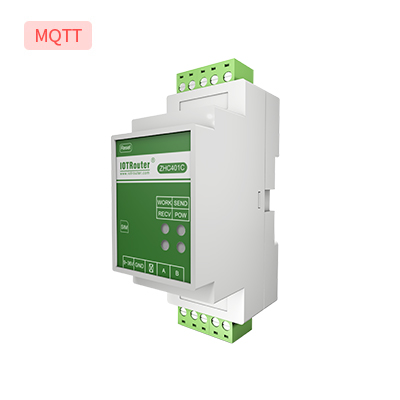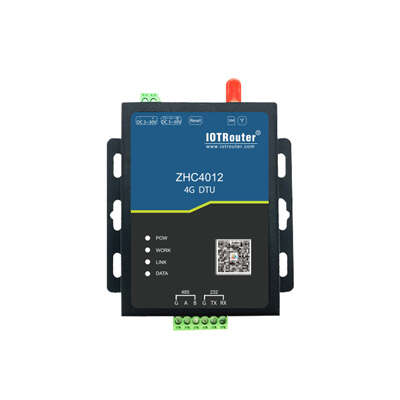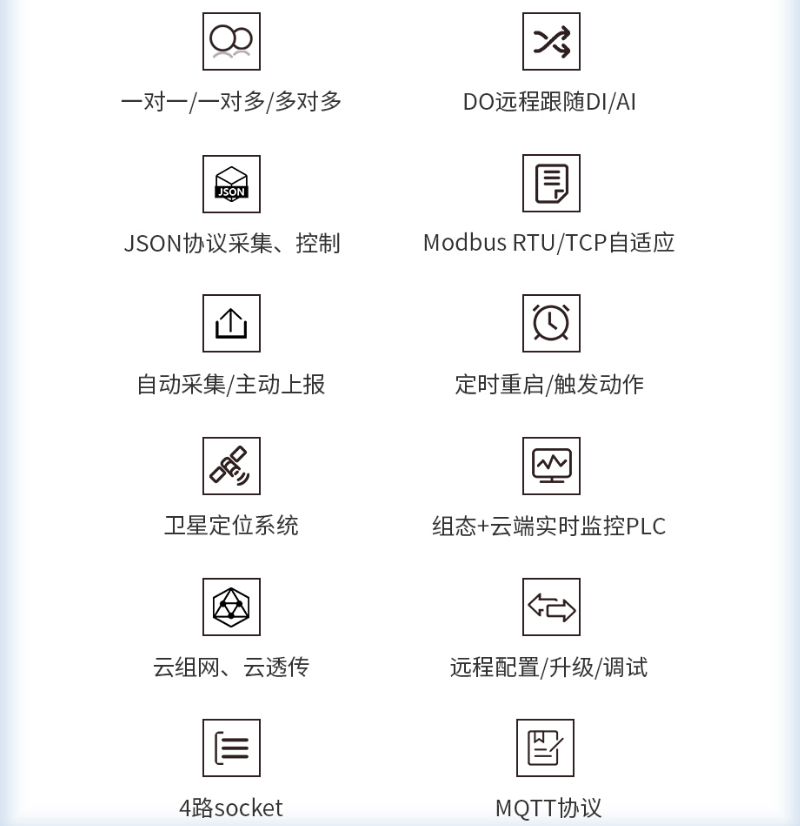Introduction to IoT 4g dtu module
The IoT 4G DTU module developed by Zongheng Intelligent Control is mainly used for data and transmission. It sends the collected sensor data to the server through the operator’s network. It also supports the server to issue instructions. The device has two-way transparent transmission. There are two types of equipment: rail type and ear-mounted type. Some devices also support the MQTT protocol (please consult online customer service). The devices are 4G full Netcom and support IoT cards of all operators.
The device supports active data collection. Users only need to set the scheduled collection time in the configuration software, and the device can regularly collect data and report it. It is easy to get started!
Internet of things 4g dtu module selection
| Exterior | Name/Model | interface | Характеристики |
 |
4G DTU ZHC4013 |
RS485 |
Support MQTT protocol Support active data collection Support JSON protocol Scheduled restart/trigger |
 |
4G DTU ZHC401C |
RS485 |
Support MQTT protocol Support active data collection Support JSON protocol Scheduled restart/trigger |
 |
4G DTU ZHC4012 |
RS485 |
Support active data collection Power off and reconnect Dual watchdog Anti-surge |
Internet of things 4g dtu module function

Internet of things 4g dtu module application
It adapts to the requirements of long-distance data transmission and communication, and is especially suitable for industries where data collection points are scattered, remote, unattended, inconvenient to install and construct wired communications, and costly, such as meteorology, environmental protection, water conservancy, electricity, agriculture, transportation, and oil pipeline monitoring , urban pipe network monitoring, industrial monitoring, etc., which greatly improves data communication capabilities, saves human and material costs, and achieves a leap forward in data communication. The 4G DTU module has a wide range of functions. It is currently mainly used in flash flood/flood discharge monitoring, construction site dust monitoring systems, automatic payment inquiry terminals, bus wireless networking, industrial control fields, traffic management, environmental monitoring, meteorology, water conservancy, coal mines, etc.